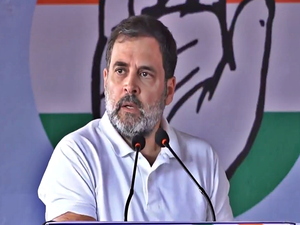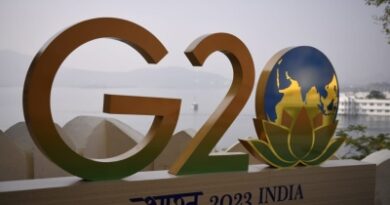Undermining media: Rahul Gandhi’s unwarranted attacks on the Press
New Delhi, Jan 27 : Congress MP and Leader of Opposition in the Lok Sabha, Rahul Gandhi, on Monday once again took an aim at the media, and accused the fourth pillar of democracy of “turning a blind eye to the pressing issues” faced by common people and farmers.
Addressing a gathering at an event in Madhya Pradesh’s Mhow, the birthplace of Baba Saheb Ambedkar, the former Congress president came heavily down on the media for allegedly being under the control of certain business groups, which he claims has led to ‘zero focus on the real issues’ affecting India’s common citizens. This latest attack is just one in a long line of public criticism of the press persons and media that have put spotlight over “the relationship between the Gandhi family and the media”.
Rahul Gandhi’s harsh words towards the media are not new. It has been seen how Rahul Gandhi has frequently expressed frustration with how the media covers his political career over the years. The Gandhi scion has often accused the media of being “biased and catering to the interests of big business conglomerates”. He argues that coverage of issues that matter to the common people, such as farmer’s woes or unemployment, is often sidelined for “other political narratives”.
However, critics of Rahul Gandhi’s approach argue that his constant focus on attacking the media is “counterproductive”. Rather than using his political speeches to address the core issues that affect the masses, analysts say, Gandhi often uses his platform to ‘humiliate and taunt’ journalists. This kind of rhetoric, according to some analysts, reflects a deep-seated animosity towards the media that has been a part of his family’s political legacy. The roots of this animosity can be traced back to the Emergency period of 1975 when the then Prime Minister Indira Gandhi, Rahul’s grandmother, imposed strict press censorship across the country. Newspapers were required to seek prior permission before publishing anything, and the media was forced to toe the government’s line.
The authoritarian clampdown on the press during that time has left a lasting impression on the political culture within the Congress party, feel political observers. Even today, some see Rahul Gandhi’s critiques of the media as an extension of this tradition of distrust and hostility toward the press. Interestingly, this recurrent rhetoric against the media comes at a time when many accuse Rahul Gandhi of failing to address the real, tangible issues that ordinary citizens care about. Many say that instead of offering concrete solutions to the problems faced by the nation, Gandhi frequently resorts to personal attacks on Prime Minister Narendra Modi. This strategy, they argue, distracts from the real issues.
The question arises: Is Rahul Gandhi’s criticism of the media merely a reaction to media criticism of his politics, or does it reflect a deeper, long-standing issue with the relationship between the Congress party and the press? Some political observers suggest that his frequent attacks on the media might be a strategic move to deflect attention from his own party’s shortcomings and to portray himself as a champion of the people, standing up against the elite and powerful forces that, in his view, control public narratives.



